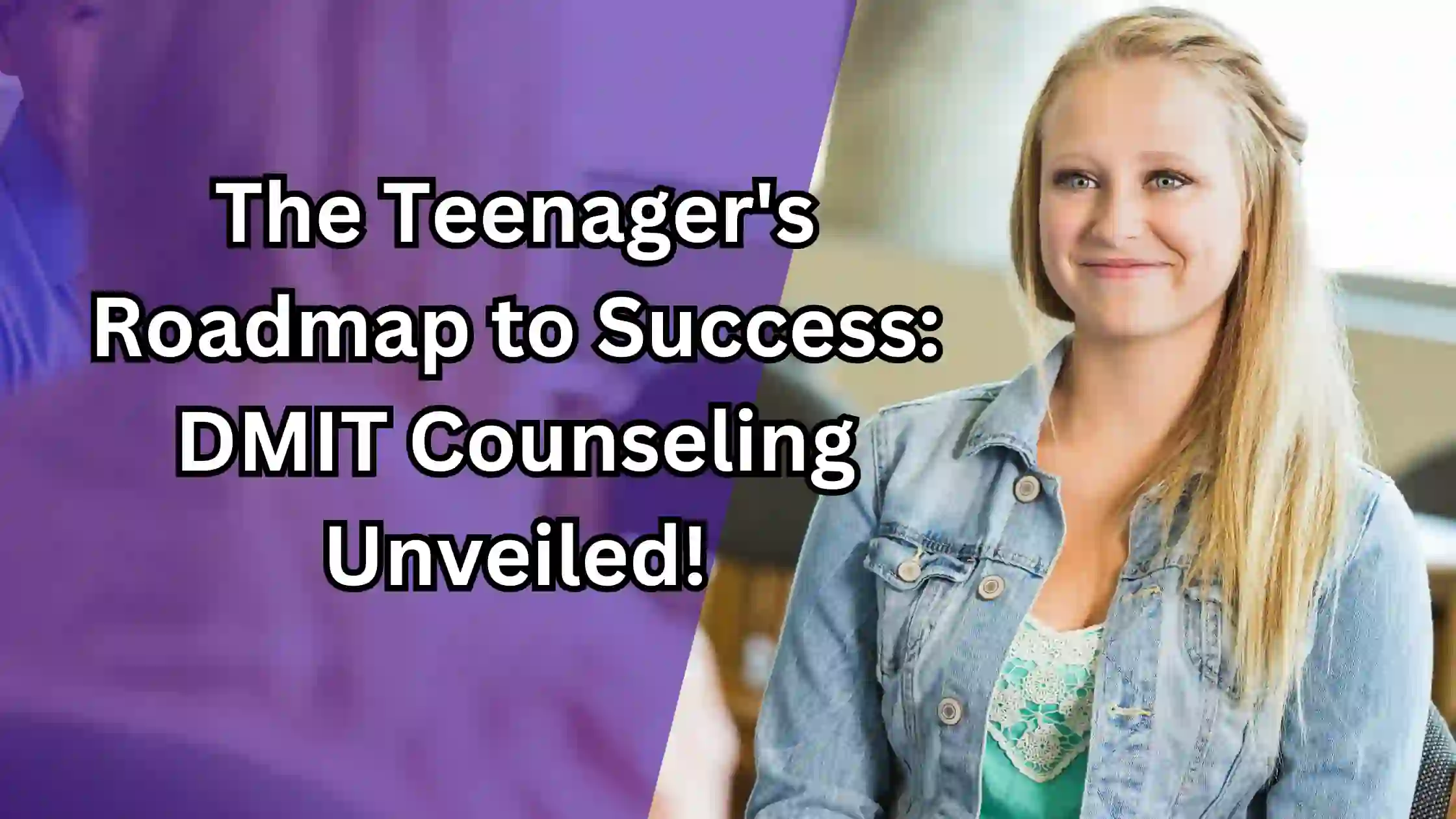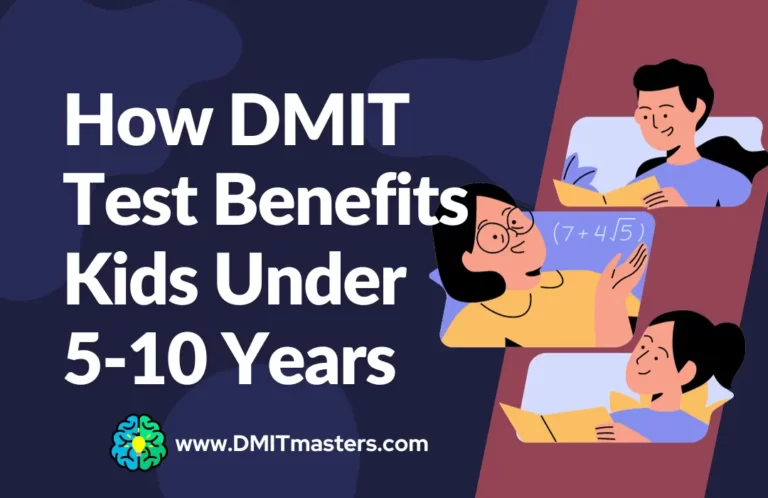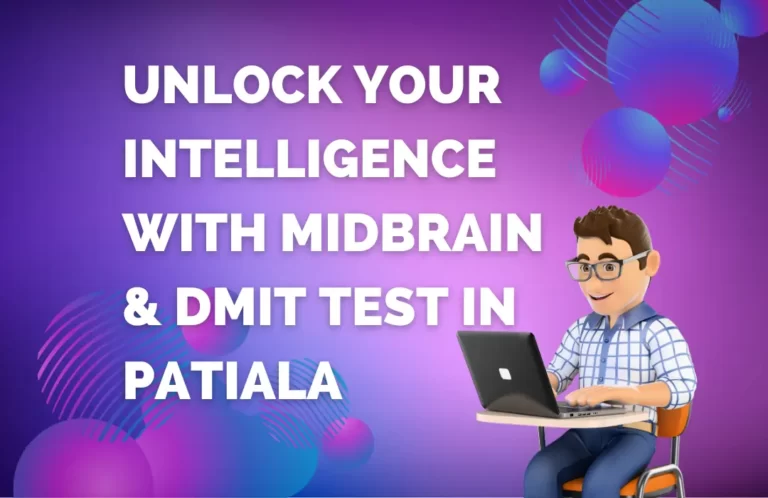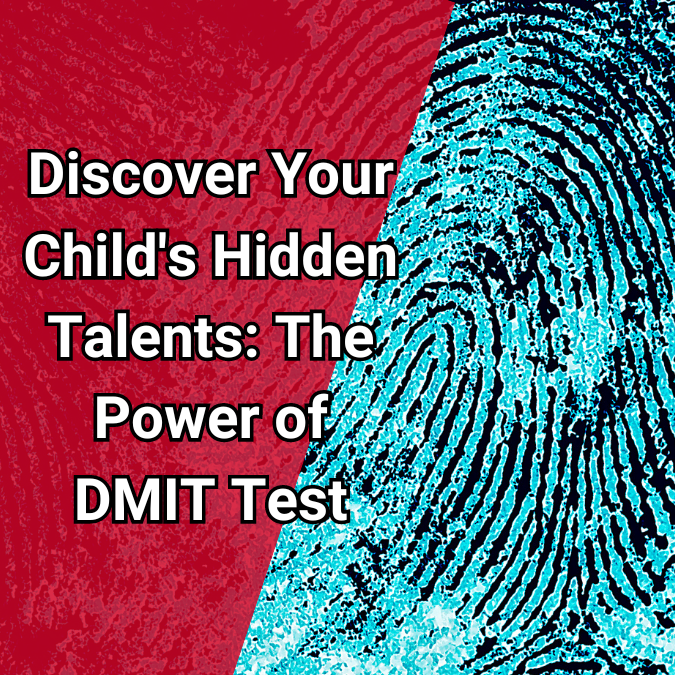The Teenager’s Roadmap to Success in 2025: DMIT Counselling Unveiled!
The teenage years can be challenging and stressful, filled with self-discovery, identity formation, and achieving academic and personal goals. Teenagers need guidance and support during this phase to deal with the complexity of their developing personalities and aspirations. The Dermatoglyphics Multiple Intelligence Test (DMIT) has become increasingly popular as a tool for teenage counselling.
I. Understanding DMIT Test
A. What is DMIT Test?
The Dermatoglyphics Multiple Intelligence Test, commonly known as DMIT, is a scientific assessment tool that combines dermatoglyphics, the study of fingerprints and palm patterns, with multiple intelligence theory. By taking the test, you will gain insight into a person’s innate talents, learning style preferences, personality traits, and potential career paths.
Each individual’s fingerprints and palm patterns reflect their unique cognitive abilities and potential, as does their DNA.
B. Historical Background and Development
DMIT was developed based on the research and studies of Dr. Howard Gardner’s theory of multiple intelligences. Dr. Gardner proposed that intelligence is not a singular, fixed trait but rather a combination of various intelligences, such as linguistic, logical-mathematical, interpersonal, and intrapersonal intelligence, etc. DMIT builds on this theory by using fingerprint and palm patterns to identify strengths in these different intelligences.
C. How DMIT Test Works?
In the DMIT process, fingerprints and palm patterns are taken and analyzed with software that decodes the dermatoglyphics and assigns a corresponding intelligence type based on them. An individual’s cognitive strengths, learning style preferences, and personality traits are detailed by the test results.

II. The Relevance of DMIT Test in Teenager Counseling
A. Identifying Individual Strengths and Weaknesses
One of the primary benefits of DMIT in teenager counselling is its ability to identify a teenager’s unique strengths and weaknesses. By understanding their innate talents and areas where they might need more support, counsellors can tailor their guidance to help teenagers reach their full potential.
B. Career Guidance for Teenagers
When teenagers are choosing their career path, it can be difficult to make informed decisions. DMIT can provide valuable insights into an individual’s aptitudes and interests, so it is easier for them to make informed decisions. As a result, they will not have to worry and stress about pursuing paths that aren’t aligned with their abilities and goals.
C. Personalized Learning Approaches
There are many different styles of learning and preferences among teens. Some may thrive in hands-on activities, while others prefer classroom settings. Educators and counsellors can utilize DMIT to tailor teaching methods to meet the individual learning styles of teenagers, resulting in more effective and engaging classes.
D. Enhancing Self-Awareness
It is crucial for teenagers to have self-awareness, particularly during the teenage years. DMIT results can help them gain a deeper understanding of themselves, their strengths, and their areas for improvement. It can also contribute to improved self-confidence and a stronger sense of self.
E. Addressing Potential Behavioral and Emotional Issues
Teenagers often struggle with behavioural and emotional challenges. DMIT can identify potential areas of concern and guide counsellors in addressing these issues. Counsellors can provide more targeted support and interventions if they understand what contributes to these challenges.
Must Read Article – Discover Your Child’s Hidden Talents: The Power of DMIT Test
III. What Points Does DMIT Test Cover?
A. Dermatoglyphics Analysis
The cornerstone of DMIT is the analysis of dermatoglyphics, which includes the patterns of ridges, loops, and whorls on an individual’s fingertips and palms. These patterns are categorized and interpreted to reveal various aspects of an individual’s intelligence and personality.
B. Multiple Intelligence Assessment
DMIT categorizes an individual’s intelligence into multiple types, such as IQ, EQ, CQ, AQ, logical-mathematical, linguistic, interpersonal, intrapersonal, musical, and more. Understanding these different types of intelligence helps individuals and counsellors recognize their unique cognitive strengths.
C. Learning Style Preferences
Learning styles vary from person to person. DMIT assesses an individual’s preferences for learning style, which can include visual, auditory, kinesthetic, or a combination of these. In order to improve one’s self-improvement efforts and education, one needs to be aware of one’s preferred learning style.
D. Personality Traits Analysis
The DMIT also analyzes an individual’s personal characteristics, such as introversion, extroversion, emotional stability, and other traits important for improving interpersonal relationships.
E. Potential Career Paths and Interests
DMIT features a unique ability to suggest potential career paths based on a person’s strengths and talents, which can be incredibly helpful for teenagers just beginning their career exploration.
IV. The Benefits of DMIT Test in Teenager Counseling
A. Early Intervention in Education
Identifying a teenager’s strengths and weaknesses early on allows for targeted interventions to enhance their learning experience. This early intervention can prevent academic struggles and boost self-esteem.
B. Improved Decision-Making
Teenagers are faced with numerous decisions, from choosing courses and extracurricular activities to deciding on future career paths. DMIT equips them with valuable insights to make informed decisions that align with their talents and interests.
C. Boosting Self-Confidence
Understanding one’s unique strengths and potential can boost self-confidence. When teenagers realize they have something valuable to offer, they are more likely to pursue their goals with determination and belief in themselves.
D. Strengthening Parent-Teen Relationships
DMIT results can be a bridge for improved communication between parents and teenagers. It helps parents understand their child’s abilities and interests, allowing for more constructive guidance and support.
E. Preparing for a Competitive Job Market
As teenagers transition into adulthood, they face a competitive job market. DMIT can provide a head start by guiding them towards careers where they have a natural advantage, increasing their chances of success and job satisfaction.
V. The Role of DMIT in Holistic Counseling
Teenagers who participate in DMIT must be provided with holistic counselling that addresses various aspects of their lives, including their emotional well-being, family dynamics, and social relationships. The DMIT should be integrated into a comprehensive intervention to provide teens with the best outcomes and a well-rounded support system for teenagers.
VI. Conclusion
In conclusion, the Dermatoglyphics Multiple Intelligence Test (DMIT) offers a unique and intriguing approach to teenager counselling. DMIT analyzes fingerprint patterns and palm patterns to determine cognitive strengths, learning style preferences, personality characteristics, and potential career paths of individuals.
The DMIT can be beneficial to teenagers in several ways, including identifying their strengths and weaknesses, advising them about career options, enhancing self-awareness, and dealing with behavioural and emotional issues. A teenager’s life and well-being should, however, be taken into consideration when using a holistic counselling approach.
DMIT, like every other assessment, should be administered with respect for the teenager’s autonomy and preferences. It is not the only way to determine a teenager’s future, but rather one piece in the complex journey of self-discovery.
Checkout our other Blog- Renatus Fitness
What is DMIT counselling, and how can it benefit teenagers?
DMIT counselling, or Dermatoglyphics Multiple Intelligence Test counselling, is a personalized counselling approach that uses fingerprint analysis to assess a teenager’s innate strengths, weaknesses, and learning style. It helps teenagers by providing insights into their unique abilities, allowing them to make more informed educational and career choices, and enhancing their self-awareness, self-esteem, and overall personal development.
How does DMIT counselling work in helping teenagers achieve success?
DMIT counselling helps teenagers achieve success by identifying their natural talents and strengths. It guides them to make informed decisions about education and career paths, leading to better choices and increased confidence in pursuing their goals. This self-awareness fosters personal development and enhances their chances of success.
Can DMIT counselling be integrated with a teenager’s existing educational or personal development programs?
Yes, DMIT counselling can be integrated with a teenager’s existing educational and personal development programs to enhance their effectiveness and provide tailored support based on the individual’s strengths and learning style.




